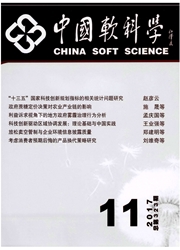

 中文摘要:
中文摘要:
本文以诺基亚星网工业园为例,提出了跨国公司“供应链园区投资”的新模式。这种投资模式让旗舰跨国公司避免了“被动嵌入”带来的限制,而且可以降低生产成本和提升竞争力。这种模式可能产生一些与东道国吸引外资的初衷相背离的结果。首先,该投资模式不利于本地企业进入外资企业的供应链网络,从而限制了外资企业在东道国的技术外溢的发生;其次,该模式给旗舰跨国公司带来强大竞争力的同时,可能对东道国的相关产业的企业产生造成巨大的竞争压力。文章最后提出了一些政策措施,以尽可能促进外资企业带来的技术外溢,并提升内资企业的竞争力。
 英文摘要:
英文摘要:
Using the case of Beijing Nokia Industrial Park, this paper shows how a flagship multinational corporation successfully has broken constrains of "obligated embeddedness" via a new investment mode, which is termed "supply chain park investment mode" in this research. This new investment mode profoundly decreases the producing cost and improves the competitiveness of the flagship multinational corporation in both domestic and world markets. This new investment mode is beneficial to the flagship multinational corporation, but it might bring some serious problems to the host country. First, this new mode makes it even harder for domestic firms to become suppliers of the flagship multinational corporation, which will limit spillover effects of FDI. Second, the flagship multinational corporation, which has applied this investment mode, together with its main suppliers in the park, brings much more competition pressures on domestic firms in the related industries. In the conclusion part, this paper provides some policy implications aiming to stimulate spillover effects of FDI and improve the competitiveness of domestic firms and industries.
 同期刊论文项目
同期刊论文项目
 同项目期刊论文
同项目期刊论文
 Spatial organization of multinational corporations in China: An Empirical Study based on Fortune Glo
Spatial organization of multinational corporations in China: An Empirical Study based on Fortune Glo Geographical concentration of manufacturing industries in China: The importance of spatial and indus
Geographical concentration of manufacturing industries in China: The importance of spatial and indus Globalization, institutional change, and industrial location: Economic transition and industrial con
Globalization, institutional change, and industrial location: Economic transition and industrial con 期刊信息
期刊信息
